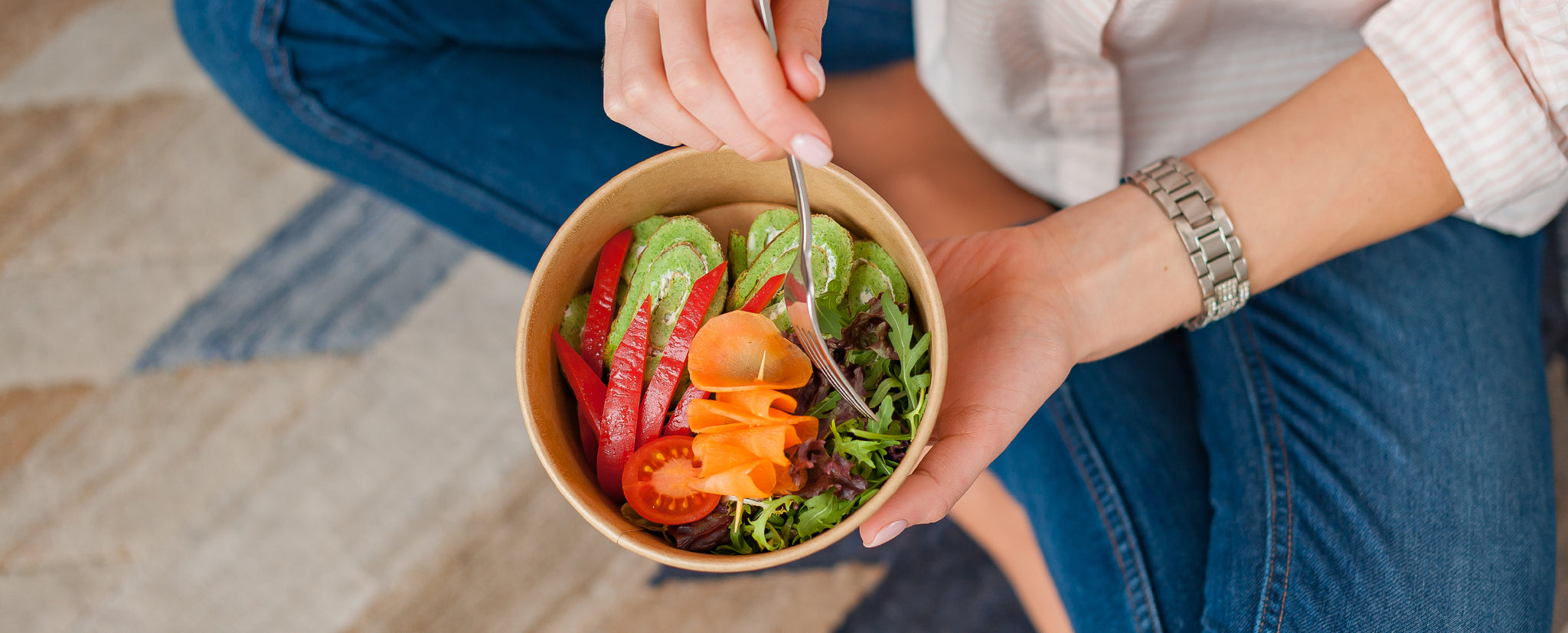Your Cart is Empty

Mindful eating is a practice derived from mindfulness, which encourages being fully present and aware of one’s thoughts, emotions, and physical sensations during meals.
It involves using all of your senses—sight, smell, taste, touch, and even sound—to truly experience and appreciate food, while recognizing physical cues like hunger and fullness.
Mindful eating traces its roots back to Buddhist teachings, specifically the act of being “in the now.” According to a feature in The New York Times, it’s not a fad diet or anything related to shying away from certain food types.
Key aspects of mindful eating include:
Mindful eating can be both formal, practiced in a structured setting like a retreat, or informal, applied casually in daily life.
Mindful eating helps you in few ways:
Mindful eating can help with weight loss by promoting better eating habits.
It encourages eating slowly, recognizing when you’re full, and choosing more nutritious foods, which helps control calorie intake and avoid overeating.
Research has shown that these mindful practices can improve diet quality by promoting smaller portions and healthier choices.
Mindful eating may help maintainblood sugar levels.
A randomized controlled trial found that participants who combined mindful eating with diet and exercise maintained their fasting blood glucose better than those who didn’t practice mindfulness.
This makes mindful eating a valuable approach for people looking to manage diabetes and glycemic control.
Eating slowly and chewing thoroughly can benefit digestive health.
Mindfulness techniques, including mindful eating, have been found to reduce symptoms of Irritable BowelSyndrome (IBS), such as abdominal pain and cramps.
While not a cure, mindful eating helps individuals manage symptoms by reducing psychological distress and improving the overall eating experience.

Sit comfortably, take three deep breaths, and feel grounded. Rate your hunger from 1 to 10 to assess whether it's true physical hunger or emotional craving.
Hold the food, and notice its color, shape, and texture. Appreciate its journey to your plate, considering all the people and processes involved.
Smell the food and notice its aroma. Observe any reactions in your body, like salivation or specific memories.
Put the food on your tongue without chewing for 15 - 20 seconds. Notice the initial flavors and texture as you let it rest in your mouth.
Chew each bite 20 - 25 times, noticing changes in texture and flavor. Focus on themovements of your jaw and how the food transforms.
Swallow and notice the sensation of it moving down. Pause, take a breath, and reflect on how your body feels—whether you'resatisfied or still hungry.
Continue eating slowly, focusing on each bite until you feel 80% full.

Mindless snacking can be hard to break, but these four tips can help you snack more mindfully:
Feeling snacky? Eat in the right portions and enjoy healthy alternatives. Check out The Daily Good’s mushroom crisps for your feel of yummy, good-for-you nibbles.